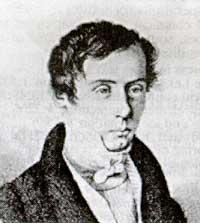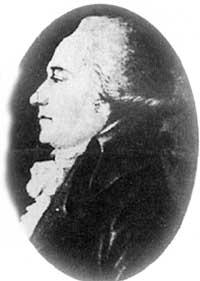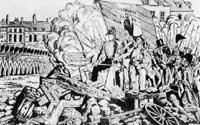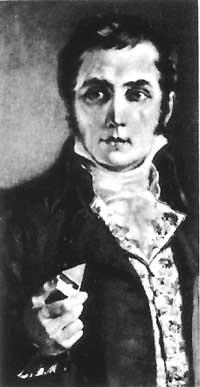Fresnel, Augustine
1995/08/02 Azkune Mendia, Iñaki - Elhuyar Fundazioa | Kaltzada, Pili - Elhuyar Zientziaren Komunikazioa
(1788-1827)
When talking about the work of this French physicist it stands out that he was a great helper of Young. However, it cannot be forgotten that he rounded up and completed Young's theories and that Fresnel's work has been used many times in honor of English more than necessary.

Fresnel was born in 1788 in Chambrais, the current city of Broglie. In his childhood he did not emphasize the arrival to science, since until eight years he did not learn to read. However, with special exercises to work intelligence, he managed to go to college. He studied engineering and began working for the French government. In 1814 he had to make a small cut in his career when Napoleon returned from the island of Elba as he rejected Fresnel.
That year Fresnel was concerned about the nature of light and without knowing Young's experiments he began to investigate on his own. His assistant Arago knew these works and became enthusiastic advocates of wave theory. As we know, at this time there was an intense debate between Newton's materialist theory and Huygens' undulatory model. Although Fresnel considered that light is a longitudinal wave that expands in the very direction of its movement, he knew that until such a theory was demonstrated it would not be accepted. In his experiments he discovered the demonstration necessary to predict this theory.
On a plane that is associated with the direction of propagation in a transversal wave he said that the waves vibrate in one direction, giving for the first time the hypothesis of polarization. He used theories of light polarization in crystalline optics. The consolidation of a new field of use was a great benefit for science, as Pasteur's discoveries in the next generation would demonstrate.
He dictated the theory of ether to define the intangible space in which light waves propagate. This caused a great stir between physicists and Arago himself dismissed this theory. Because of these debates, the media, the wave theory of light was not fully accepted in Europe at the time of the Fresnel, and they had to spend many years to achieve their full approval.
Augustine Fresnel could not see him because he died in 1827 in the village of Ville d'Avray, near Paris.

Gai honi buruzko eduki gehiago
Elhuyarrek garatutako teknologia





